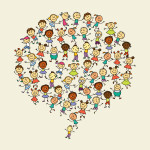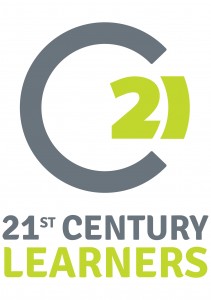Relationships, Dialogues and the Liberation of the Young
“Yet all experience is an arch wherethrough gleams that untraveled world, whose margin fades for ever and for ever as I move.” Alfred Lord Tennyson, Ulysses
Relationships are essential in education. This is a truism with which few teachers would argue. We all work to create an environment in which young people feel safe, valued and free to learn. But perhaps relationships are also the gateway through which our young people can access their full cultural inheritance; perhaps they are Ulysses’ arch to the untraveled world.
I have often been found cajoling students to ‘learn stuff’ by emphasising that the ‘stuff’ could help them to gain qualification in the future: “I don’t know why they want you to learn about the periodic table, but it will be on the exam and you need to know it (so that you can get to a better catering college three years from now).” I was using my relationships with the students to persuade them to trust me that, although the ‘stuff’ appeared irrelevant, it would lead them to some kind of liberation in the future.
But I wonder if I was leading them into servitude rather than to liberation. A ‘liberal education‘ is liberal because it is education for its own sake, free from the contingent wants of future employers. And it is liberating because it gives young people access to rich ideas and concepts that open up new perspectives and ways of thinking; great literature, art, and science help them to, in the words of Michael Oakeshott, become more human, as they gain access to our shared understanding of what it is to be human. Perhaps ALL our young people, not just the ‘gifted’ or the privileged deserve the opportunity of liberation in this way.
Oakeshott described this as an initiation into the ‘conversation of Mankind‘ (or in modern parlance the dialogue of humanity). To join such a dialogue young people need to be brought up to speed with what has been said so far – they need to learn some challenging ‘stuff’.
But so many of the young people we teach see the ‘stuff’ as irrelevant; a fixed or ‘dead’ body of dusty knowledge discovered by dead people long ago. Should we try to persuade them otherwise? And if so, how? Teaching by transmission runs the risk of reinforcing the idea that knowledge is authoritative and fixed. Only in dialogues does knowledge and the concepts on which it is founded come alive. In dialogues we quickly see that there are always different perspectives on concepts and that these can be challenged and synthesised. In this way the concepts come to life and our personal conceptual understanding grows. In the longer term, concepts evolve and knowledge itself evolves in dialogues. Human knowledge is not dead but alive, and young people can aspire to shape it for the future; they can not only join the dialogue of humanity, but ultimately they can enrich it. If we can help children to see knowledge in this way, then perhaps we can help them to become interested in it and to see its relevance to their lives.
 In our forthcoming book ‘Dialogic Education: Mastering core concepts through thinking together‘, Professor Rupert Wegerif writes “Outside of relationships and dialogues nothing cultural is particularly interesting in itself. Children are only interested in things insofar as they participate in the relationships and dialogues that make those things interesting.” He adds that “(Children) might not always know what they are interested in yet, but they are open to being persuaded by significant others to get interested in dialogues.”
In our forthcoming book ‘Dialogic Education: Mastering core concepts through thinking together‘, Professor Rupert Wegerif writes “Outside of relationships and dialogues nothing cultural is particularly interesting in itself. Children are only interested in things insofar as they participate in the relationships and dialogues that make those things interesting.” He adds that “(Children) might not always know what they are interested in yet, but they are open to being persuaded by significant others to get interested in dialogues.”
If this is the case then the importance of relationships becomes amplified. We need to use the trust that we build with our students to encourage them to accept an invitation to join the dialogues of physics, art and history, not because they offer the promise of future earning potential, but because they are the door to the great and liberating adventure of education and to becoming more human now.
Should this argument be regarded as progressive or traditional? There is little more traditional in education than drawing children into dialogues about the great works of our culture, but there is little that is more progressive than helping them to think critically about these works and to believe that they can re-shape the knowledge they contain and apply it to the problems of the present and the future. In this form of dialogic education it is not whether a teacher is labelled as progressive or traditional that counts, it is whether they have the knowledge, the passion, the skill – and the relationships – to draw young people into dialogues around rich ideas – to act as an arch through which ALL can pass into an untraveled world for the educational adventure of a lifetime.



